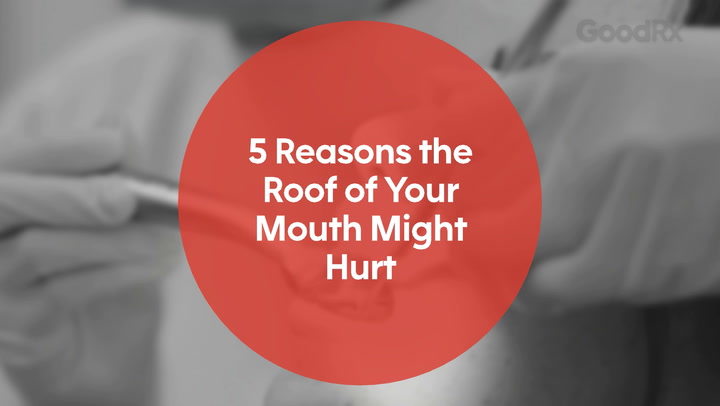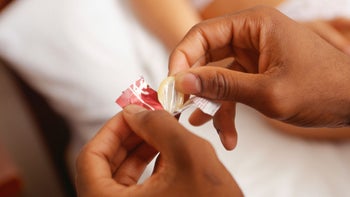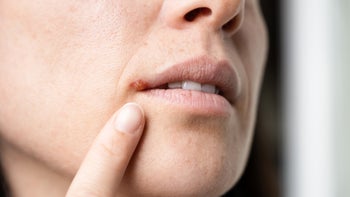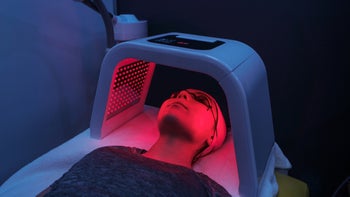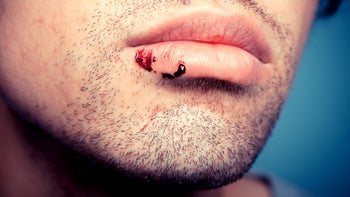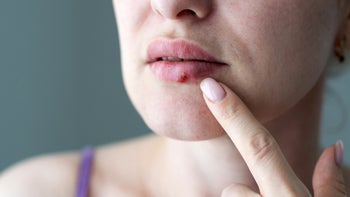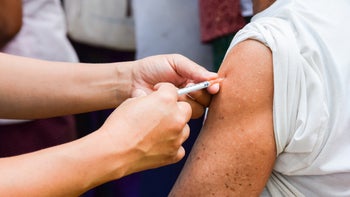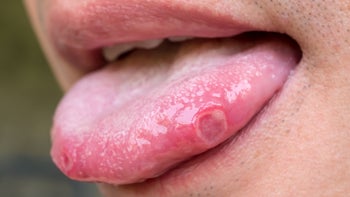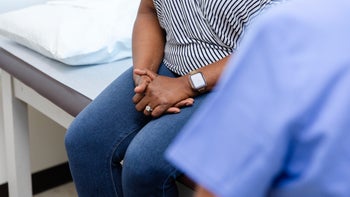
How Long Does a Herpes Outbreak Last?
Key takeaways:
Herpes is a lifelong condition caused by the herpes simplex virus (HSV).
An initial genital herpes outbreak can last about 2 to 4 weeks. The initial outbreak is often the most severe. Outbreaks often become milder and less frequent over time.
Prescription medications help shorten the duration, severity, and frequency of an outbreak.

Herpes is a viral illness caused by the herpes simplex virus (HSV). There are two kinds of HSV:
HSV-1: HSV-1 causes oral herpes, which are blisters around the mouth and lips. These blisters are also called cold sores or fever blisters.
HSV-2: HSV-2 causes genital herpes. These blisters usually develop around the genitalia and anus.
But the distinction between the two types of HSV isn’t always clear cut. Both types of HSV cause blisters, but in different areas of the body. Since the resulting blisters are identical, you can’t distinguish them by appearance alone.
Search and compare options
If you’re experiencing a herpes flare, you might be wondering how long it’ll take to go away. Luckily, herpes outbreaks follow a predictable pattern. Here’s how long it usually takes for a herpes outbreak to heal — and what you can do to speed up your recovery.
How long does it take for a herpes outbreak to go away?
An initial genital herpes outbreak can last 2 to 4 weeks. Your first genital herpes outbreak usually lasts the longest — and has the worst symptoms.
Over time, your immune system will learn how to keep the virus in check. That means that after your first outbreak, you’ll likely experience fewer outbreaks. And when outbreaks do happen, they’ll be less severe and go away faster. Exact timing varies from person to person. Some people recover from subsequent genital herpes outbreaks within a few days. For others, it can take longer to fully heal.
Oral herpes outbreaks follow a similar pattern. The first outbreak is usually the worst. After that outbreaks become less frequent and less severe. Most initial oral herpes outbreaks last about 7 to 10 days.
Oral and genital herpes outbreaks follow the same pattern and the blisters are usually in the same location every time. Therefore, by paying attention to your specific symptoms and the affected area, you can learn to identify an outbreak as soon as it starts. You can also start to predict how long an outbreak will last, based on your previous outbreaks.
Genital herpes healing timeline
An initial herpes outbreak typically follows this timeline:
Days 1 to 2: Warning signs appear, including burning, itching and tingling of the skin.
Days 3 to 5: Painful blisters form and fill with fluid.
Days 5 to 7: The blisters open and the fluid drains.
Days 7 to 14: The blisters scab over and start to heal. Pain improves.
Day 14 to 28: The scabs dry up and fall off. You may have some itching when this happens.
Subsequent outbreaks progress through this timeline faster. So, instead of lasting 28 days, symptoms may last 14 days.
Can you make a herpes outbreak go away faster?
Yes, you can take medication to help herpes outbreaks go away faster. Medication can also help prevent outbreaks.
Treatment options for herpes include:
Medication is most effective if started at the beginning of an outbreak.
To treat a genital herpes outbreak, your primary care doctor will likely prescribe antiviral medications for 7 to 10 days. For oral herpes, you may take medication for 5 days. But sometimes a single dose of valacyclovir or famciclovir is enough to treat an oral herpes outbreak.
But, if you get frequent outbreaks, you may be able to take medication every day to prevent outbreaks from starting.
When do you stop being contagious after a herpes outbreak?
You’ll stop being contagious from a herpes outbreak when your last blister completely heals. This is true for both oral and genital blisters. This will take between 2 to 3 weeks, but the exact amount of time will vary from person to person.
Keep in mind that you’re contagious starting on the first day of an outbreak. You may only have symptoms like tingling or burning at that time. That means you can pass the virus to others even before you develop blisters.
The bottom line
Genital herpes outbreaks can last from 2 to 4 weeks. Oral herpes outbreaks heal faster, usually within 7 to 10 days. Initial outbreaks of both genital and oral herpes typically last longer than subsequent outbreaks. Subsequent outbreaks heal faster and aren’t as severe. Antiviral medications can speed up healing and help outbreaks go away faster.
Why trust our experts?


References
American College of Obstetricians and Gynecologists. (2024). Genital herpes.
Centers for Disease Control and Prevention. (2024). About genital herpes.
Cedars Sinai. (n.d.). Herpes simplex virus (HSV) mouth infection.


